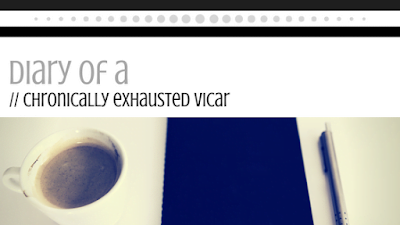Less than a week after I reflected on some good energy, healthy practices and rhythms, and an apparent turning of a corner towards wellness, I was overcome with tiredness and slept a whole afternoon away on the couch.

Life with chronic fatigue is unpredictable, unsettling, and not much fun.
It took a good day and a half, almost two, to shake that fog that suddenly enveloped me. And I’m still not feeling entirely ok.
But I do want to acknowledge the determination not to let this illness manage me, but instead, to find healthy ways to manage life with this illness. That determined commitment to living well with chronic illness has meant that yesterday, although my colleague observed I not only looked tired, but almost asleep at my desk (and he was right, I was), I persisted with the tasks of the day, slowly and gently, driving to several places around town to run errands, taking time to properly fine-tune the liturgy for Sunday, and accepting the support of our office services manager, not insisting on doing it all myself. I didn’t try to do all the tasks yesterday, either: I bought the things for tidying an area of the church, but left it till today to go back to the church and do the tidying, so that I could rest some yesterday afternoon.
It’s the little things, the small, everyday, moment by moment decisions that I seem to be able to make without too much deliberation. This is when the good rhythm and practices really come into play, even more than in creating weeks of wellness. They support me in the days of illness.
I learnt a long time ago to trust my intuitive process, rather than berate myself for what might appear to be laziness or distraction. I realised that I needed my conscious mind to be distracted, so that my unconscious creativity could feel its way through what I was thinking, and find my way to the words I would compose, for essay, sermon, or poem.
This week, while I was resting within the tiredness fog, I knew I could trust that process, that the work I’d done earlier in the week to plan the theme and direction of the sermon would be giving my subconscious something to work with, and it did. When I finally had the capacity to sit down and compose, the words have come. And I have a bit of time now to go for a swim before returning to polish them this evening, so that tomorrow I can be fully present with the couple whose marriage we are blessing.
I think I must also have learnt to trust my instinctive listening to my body, somewhere through this living with chronic illness. I seem to be able to modulate my pace, so that I can keep moving even when I am heavy and slow, and the movement itself seems to build gentle momentum and help lift me through and out of the fog. The healthy practices and good rhythm really do help me to live well with this illness, to manage it, rather than become its victim.
What are the healthy practices, good rhythms, you have, or might, put in practice, to help you live well, especially through the days of challenge?



Leave A Comment